Indigenous languages constantly face a process of institutionalized exclusion in a digital world tailored by the most spoken languages of the world. This situation pushes many indigenous populations to disregard their mother tongue and ceasing its transmission to future generations.
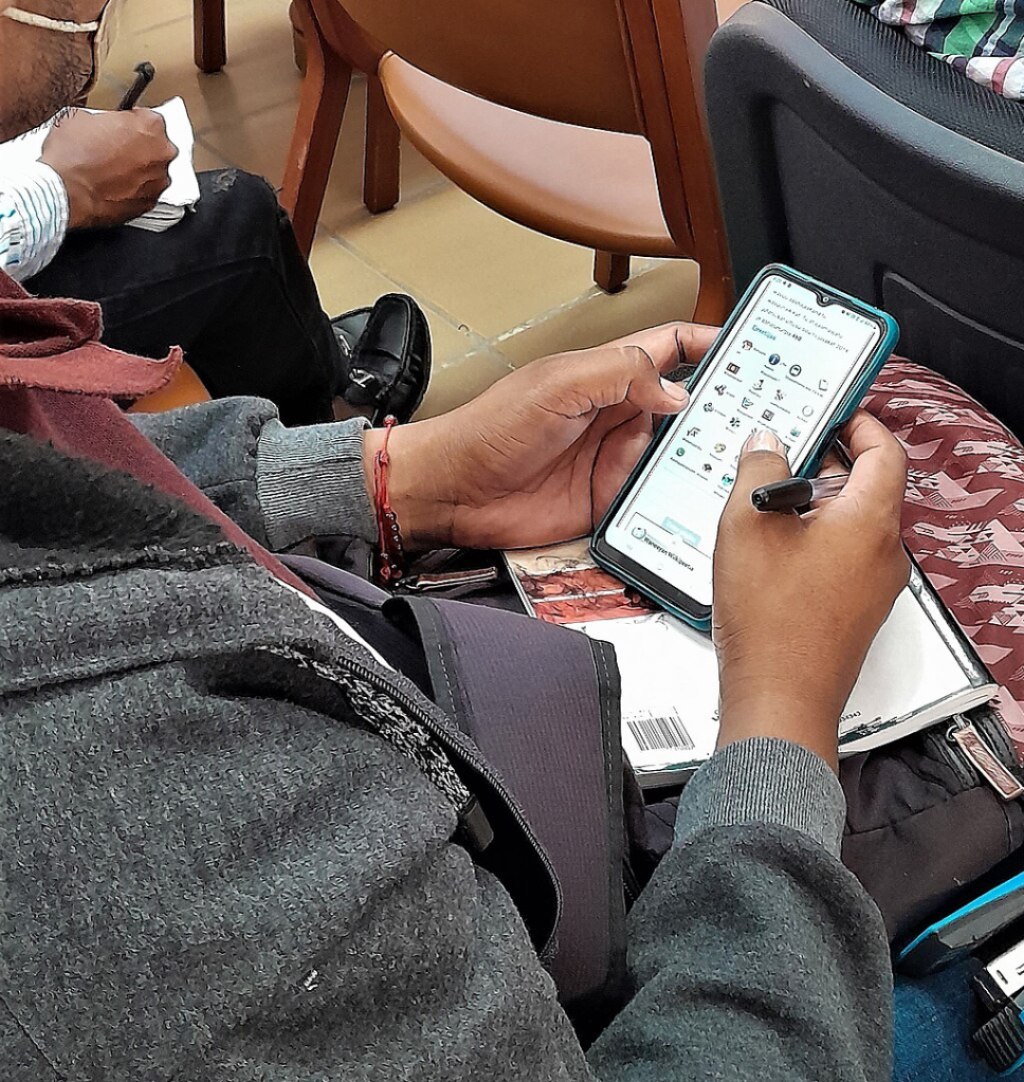
According to the UNESCO Atlas, on the planet are spoken 6,700 languages, of which 40% are endangered. This situation is alarming for all indigenous and non-indigenous populations, in order to generate spaces for reflection around experiences that serve to strengthen and adapt to current circumstances.
Because of this situation, the Wayuu community, as the largest indigenous group in Colombia and Venezuela, has been directed to venture into the use of Wikimedia tools with a view to use them as the repository of Wayuu knowledge, and positioning it as a space where people can find content reflecting the cultural experience of the community.
== Our experience==
On February 27, 2023, we saw the birth of our Wayuunaiki Wikipedia, a very important step to develop our objective.
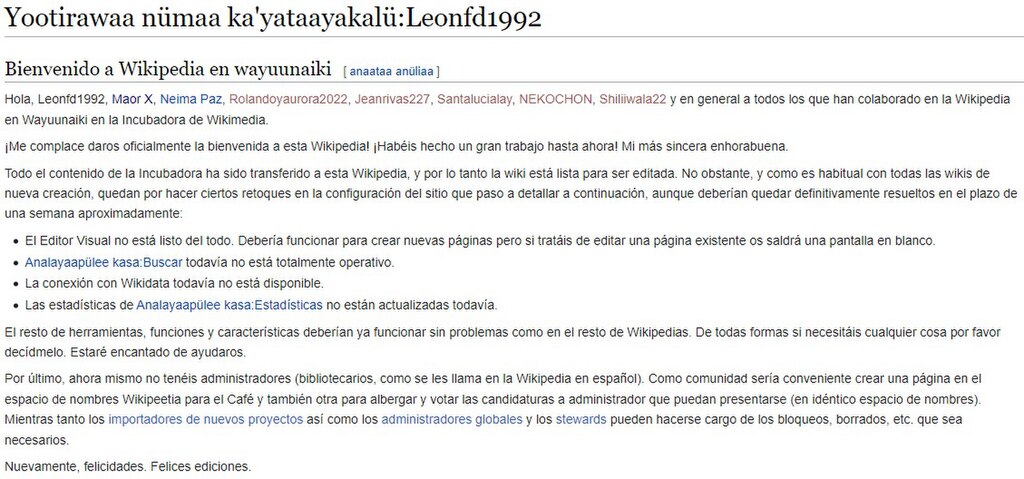
First of all, we should highlight the power of data and information, and how the data released during the project has served to transmit cultural memories from one generation to another, just as manuscripts and ancient writings from ancient cultures have been doing since ancient times. Using information and knowledge is vital to keep alive the wisdom of the people and is even a way of looking at the past.
Oral tradition, music, traces, stories, cultural practices and any other element practiced by a society contains a meaning and an internal logic within any population, which serves to unite the group in relation to its own culture. In any case, interculturality has served as a way to exchange experiences between peoples to use foreign elements in favor of their culture.
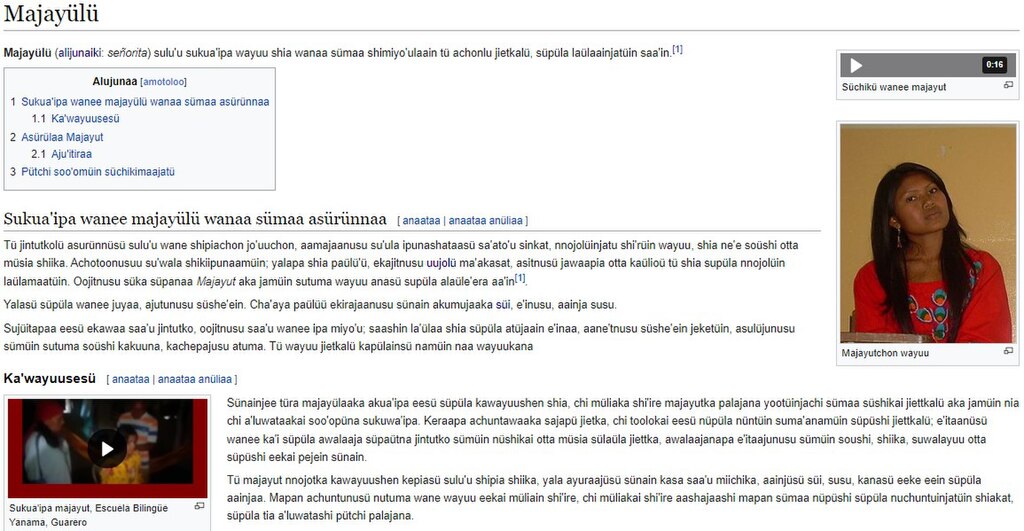
Wikipeetia süka wayuunaiki seeks to become the cultural repository housing the digital memory of Wayuu knowledge, in order to offer a tool for strengthening their cultural identity. We do this taking ingo condideration the strength of data and the circulation of information through the digital world, in addition to the growing access of the Wayuu people to educational platforms and systems that involve the use of technological tools.
In order for it to be a cultural repository and a digital memory, the participation of the language-speaking community must be reflected. Likewise, Wikipedia must reflect the experience of the community, that is, hosting content including all the differences and dialects existing in the language. In this case, our group was formed by inviting speakers of various dialects and encouraging everyone’s participation.
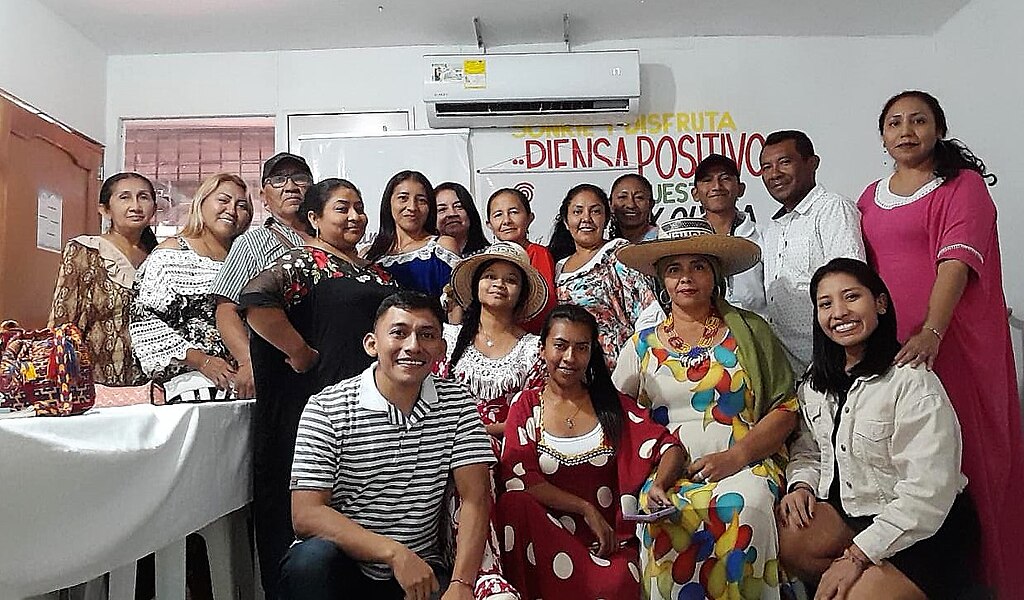
In order to comply with this principle of collectivity, we invited teachers from Venezuela and Colombia and they, in turn, also invited their teaching colleagues. Likewise, in the consultation processes we have set for us the task of listening to the needs and ideas on how this repository can continue to be nourished, receiving varied responses, but with common points such as: promoting the participation of monolingual elderly men and women as non-mixed subjects and as real connoisseurs of topics not touched by the Spanish speakers, visiting the different communities and areas of La Guajira, in order to reflect the experience from each area.
== Crossing barreers ==
It is no secret to anyone the conditions into which many of the indigenous communities were pushed after the struggles for territories in the past. A large part, if not all, of the indigenous communities inhabit remote and difficult-to-access areas, which historically served as refuges to prevent them from being absorbed or decimated.
In the case of the Wayuu community, they settled on the Guajira peninsula, in the northernmost part of eastern Colombia and north of western Venezuela. Likewise, its territory is intervened and politically divided between Colombia and Venezuela. The Guajira peninsula is a semi-desert area facing the Caribbean Sea, a region far from centers of power such as Caracas or Bogotá. However, it was there that the Wikipeetia süka wayuunaiki, developed, among places such as Maicao, Riohacha, Manaure, Masülein, Maracaibo, Talo’uluma’ana, Guarero and Paraguaipoa.
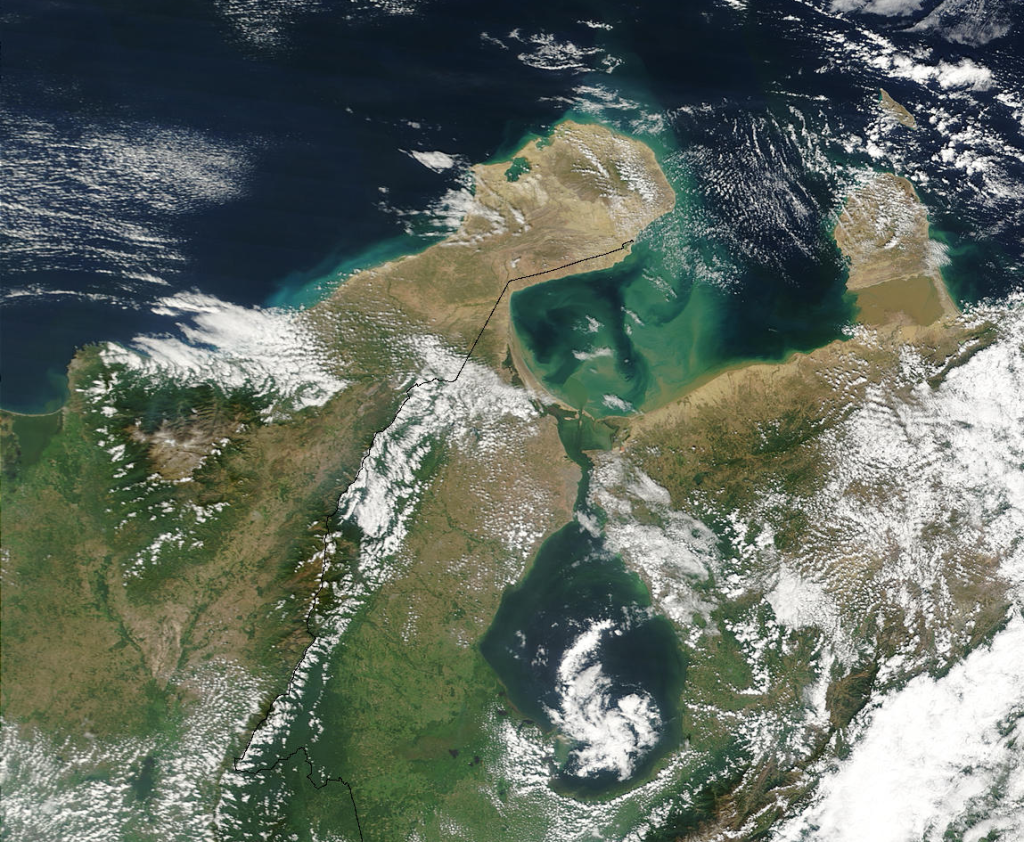
Many of the teachers who participate in Wikimeditas Wayuu come from the aforementioned communities and are located in the border area of Colombia and Venezuela, therefore, before these people could participate, they had to overcome various barriers such as: crossing the border from one country to another to participate in the workshops, the lack of computer equipment and locating an internet connection that allows them to access the articles needing to be developed.
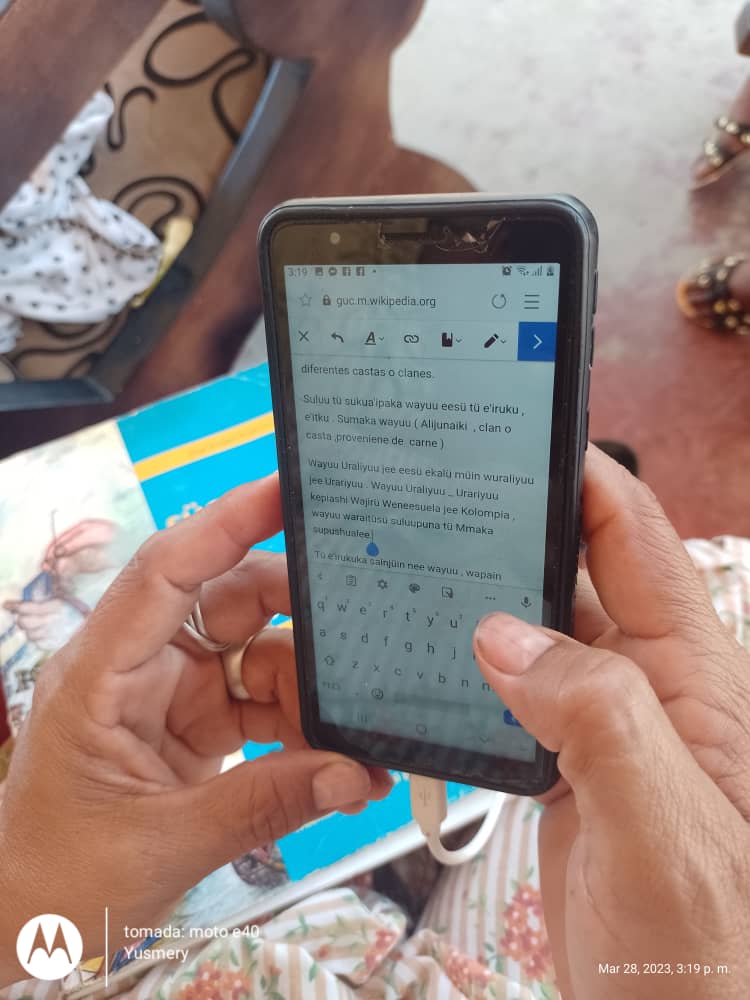
However, an important motivation introduced was to empower them to develop a discourse about why the project is useful, that is, the community must understand what is the goal of having a digital repository and how they can participate, that way we can have more leaders who contribute to the process even crossing the aforementioned barriers.
Another motivating element, according to our criteria, was the power of the transmission of knowledge, since we had meetings with teachers who were not really experienced about the use of computers or platforms such as Wikipedia, and the fact of teaching them to use these tools was, for each one of them, an important learning process, which, according to their words, also helps them to learn how to use digital tools. This situation also showed us the collaborative spirit that exists among the Wayuu, since the most skilled teachers in the use of computers or cell phones tended to help others when editing.
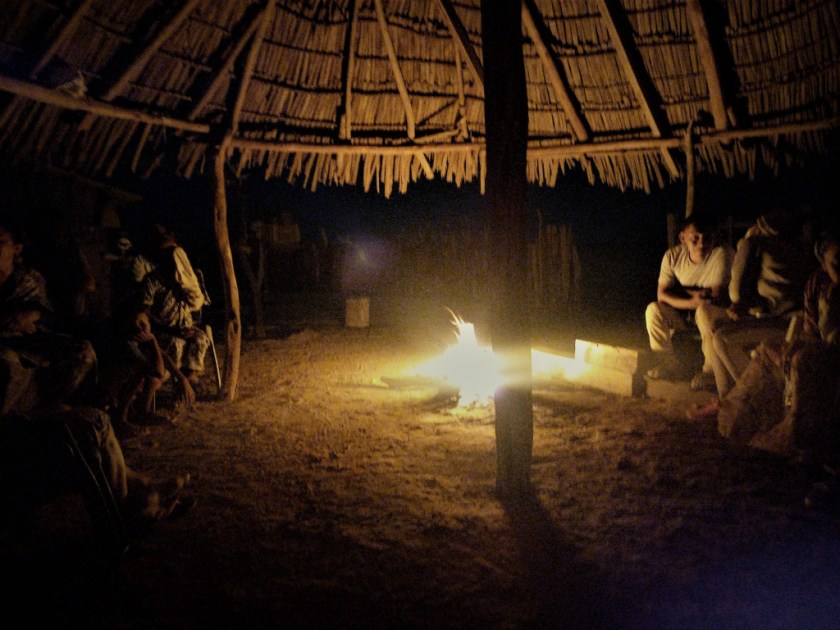
On the other hand, it is worth noting the high participation of Wayuu women in our workshops and meetings, since our community comes from a matrilineal kinship system, that is, women have a more active role in daily life, being the ones in charge of managing the spiritual rituals and mediation in conflict situations. For this reason, in Wayuu Wikimeditas this affinity system is reproduced.
Know more about our experience
Category on Commons: Wikimedistas Wayuu
Instagram @Wikipeetia_wayuu
Youtube channel: Wikimedistas Wayuu

Can you help us translate this article?
In order for this article to reach as many people as possible we would like your help. Can you translate this article to get the message out?
Start translation